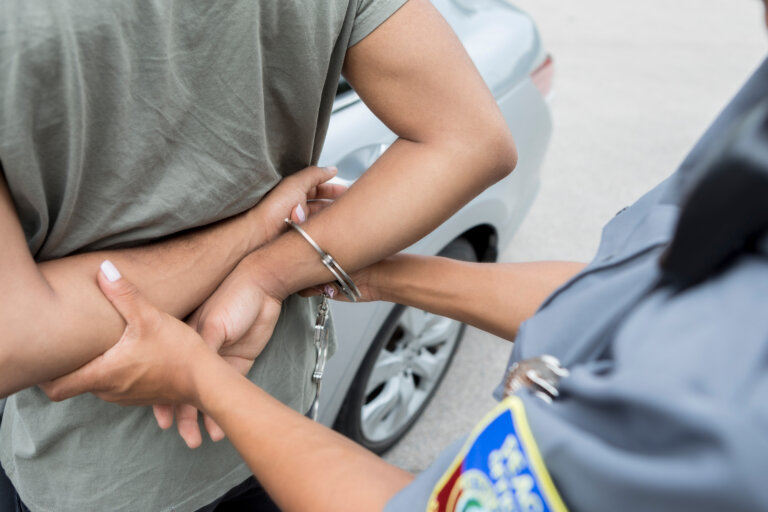If you are like most folks, you are probably familiar with the Miranda warning from watching shows like Law & Order on television. Whenever the police on these shows arrest a suspect, they always read them their Miranda rights. This is from a leading Supreme Court case that held that criminal defendants must be told of their rights upon arrest.
The warning is fairly simple and straightforward, consisting of three simple sentences: “You have the right to remain silent. Anything you say can and will be used against you in a court of law. You have the right to an attorney. If you cannot afford an attorney, one will be provided for you.” These words are derived from the Fifth and Sixth Amendments that protect you against being compelled to make self-incriminating statements and guarantee your rights to an attorney in a criminal case.
While in most cases you will be read this statement of your rights by a police officer, there are some instances where this does not occur. This is either because the rights don’t apply or because law enforcement simply forgets to read them. When this happens, it can have a major impact on your case. The Miranda rights are a crucial part of the U.S. justice system and were designed by the Supreme Court to protect the Constitutional rights of suspects who have been taken into police custody. In the following, we will go over when you are entitled to be read these Miranda rights, and what happens if the police fail in this regard.
Do cops have to read Miranda rights?
Whenever a person is taken into police custody or arrested, law enforcement is required to read the Miranda rights. This applies regardless of whether the law enforcement agents are local police, Florida state police, FBI agents, or representatives of other local, state, or Federal law enforcement agencies. However, there are some instances where the cops do not have to read you this Miranda statement.
One of the most common times when a cop is not required to read a Miranda warning is during a routine traffic stop. Since you are not being taken into custody, the officer has the right to ask you questions. However, you are under no obligation to answer them. Nevertheless, most motorists don’t know this and will begin conversing with the cop, often to their own detriment.
Similarly, if you are not being taken into custody, the police can feel free to ask you questions without reading the Miranda rights. Anything you say to the police in this instance can be admitted into evidence against you if you are eventually arrested. So, if the police show up at your home or office and tell you they’d like to ask you some questions, then you will not be read your Miranda rights. What most people don’t know is that they are not obligated to answer the questions.
There are a number of other instances where the cops don’t have to read you the Miranda rights. If there is an ongoing emergency that can affect public safety such as a terrorist attack, the police do not have to Mirandize potential suspects. Also, undercover cops and police informants don’t have to tell suspects that they have these rights. Finally, under Florida’s loitering or prowling law, cops don’t have to give Miranda warnings to anyone suspected of loitering before asking them who they are, demanding a form of identification, and what they are doing in the place where they are standing. If the police are unsatisfied with the answers, they can take the person into custody, with the answers being admissible into evidence.
What happens if you don’t receive your Miranda rights?
Except for the scenarios identified above, if you are taken into custody and do not read your Miranda rights, there are a number of things that you can do to protect yourself. If you have spoken to the police after getting arrested, and you did not have a lawyer present, you can file a motion to suppress any and all evidence obtained by the police as a result of this conversation. If the court finds that you were taken into custody without being Mirandized, it could agree to not allow any of this information into evidence in a case against you. Keep in mind that the right to remain silent applies to a custodial police interrogation. If you make a spontaneous, unprompted comment to a law enforcement officer, or speak with someone else who is locked up with you at the police station, this will be considered a waiver of your Miranda rights.
Even if you haven’t been read your Miranda rights, you can still refuse to speak to the police. You should first ask if you are free to leave. If they deny this request, then you should say you are invoking your rights to remain silent and request the opportunity to speak with an attorney. The police will try to get you to waive these rights. Do not give in to the pressure. It is crucial that you remain silent after you have invoked your Miranda rights. There is an old saying that silence is golden, and it is especially true if you have been arrested by the police.
If you are facing criminal charges and weren’t read your Miranda rights, call our law firm
The Miranda rights are a key part of your defense, and one that law enforcement is always trying to get around. If you were arrested without having been Mirandized, call Van Elswyk Law. We have the experience you need to protect your rights and fight the charges that the government has filed against you.

